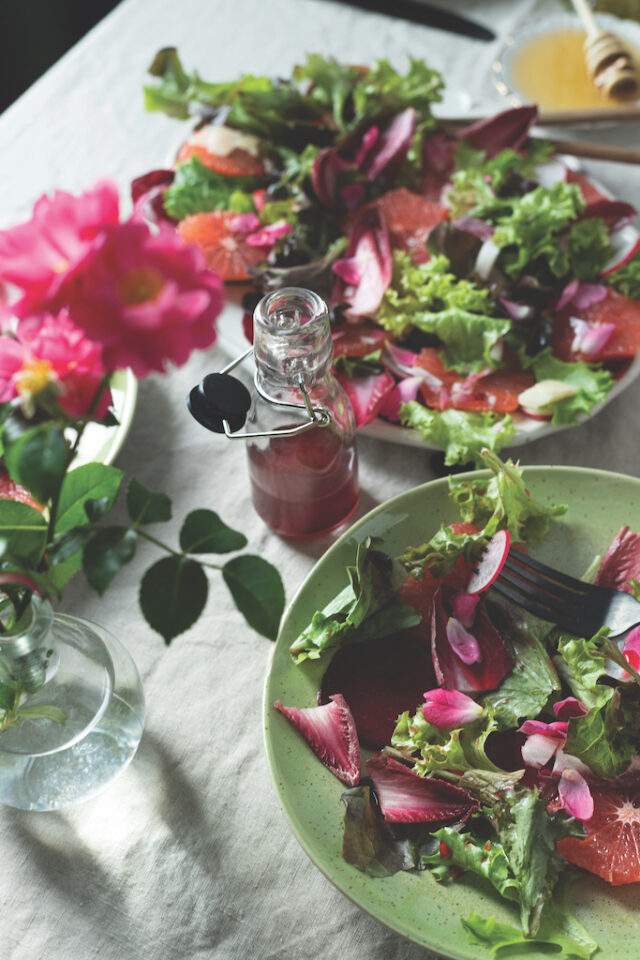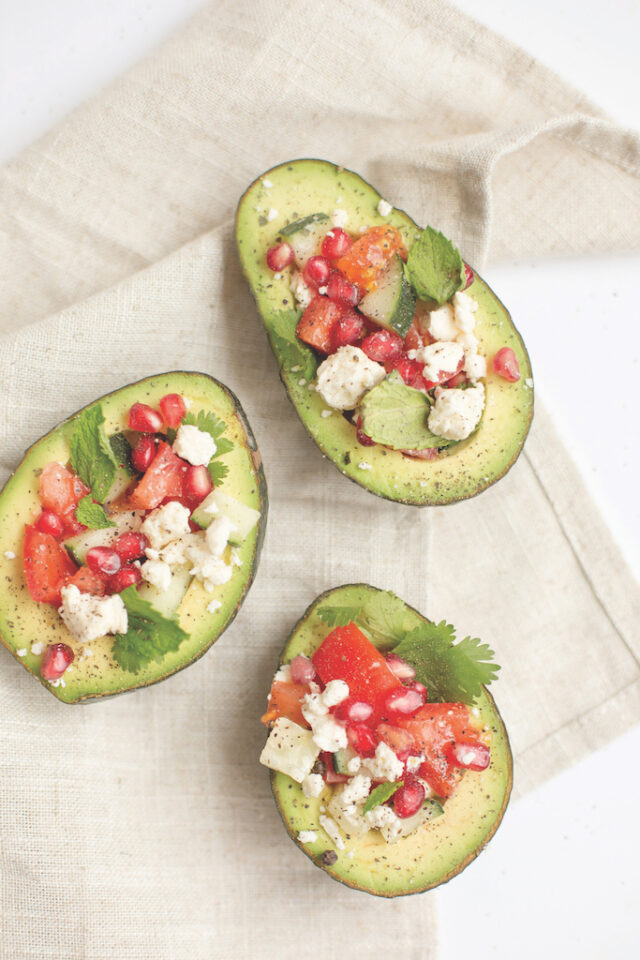
By Dr. Stacie Stephenson
One of my favorite things about summer, second only to all those opportunities to spend more time outdoors, is the food. Fresh, local vegetables and fruits are at their ripest and best over the next couple of months. Seek them out, enjoy the vibrant flavors and colors, and feel your energy soar. Easy, right?
The truth is that during the time of year when the most fresh, natural food is plentiful, all kinds of foods that are not only nonnutritious but potentially harmful are also available, full of industrial chemicals, hidden sugars, and the toxic by-products of certain cooking methods.
This can make eating a bit complicated. Do you eat what everyone else is eating, or do you make a better choice? I say, why not have a self-care summer, committing to filling your plate with the freshest, most natural whole foods and passing on the foods that dull your glow, sap your energy and prematurely age you? Let this article be your guide.
Just Say No to Ultra-Processed Foods (UPFs)
UPFs are popular summer foods at picnics, the beach, parties and swimming pools. If you’re tempted by hot dogs, chips and ice cream, beware! UPFs have undergone so much industrial processing that they no longer resemble the ingredients they are made from. Full of added refined sugars, industrial fats, food colorings, preservatives and sodium, they are molded and milled, extruded and compressed, mixed in big vats and squirted out of tubes on the factory line (yuck!). As a nutritionist, I can’t support calling them food at all. They are like the ghosts of food that once was.
I understand why people don’t want to cook on a hot stove or fire up the oven on a steamy July day. However, just because you aren’t necessarily cooking doesn’t mean you have to revert to food delivery, or packaged cold cereals and breads, pastries, fries and chips, processed meats, energy drinks and soda pop. While convenience may be alluring, it may seem less tempting when you consider what processed foods do to your body.
For one thing, people who eat UPFs eat more calories while getting less nutrition. The first-ever randomized, controlled study of ultra-processed diets, published in 2019, clearly demonstrated that over 14 days, those people given an ultra-processed diet and allowed to eat as much as they wanted ate about 500 calories more every day than those who ate an unprocessed diet and were also allowed to eat as much as they wanted. The processed food eaters consumed much more carbohydrate and fat, but less protein. They also gained weight. Those who ate an unprocessed diet lost weight, taking in fewer calories and more nutrients.
UPFs have also been linked to a greater risk of heart disease, Type 2 diabetes, depression, anxiety, poor sleep, lung problems, obesity, cancer (especially colorectal), hypertension and all-cause mortality. No thanks!

What to eat instead: Whatever food tempts you, look for the most natural version—not in the convenience store, but in the produce aisle or better yet, your local farmers market or farm stand. Bring food with you to events—pack picnics in coolers. Choose fresh seafood over processed meat, nuts and seeds over chips, whole grains over refined, and fresh green juice, green tea, or sparkling water over soda and energy drinks.
Make it a goal to try a lot of new vegetables this summer, and eat what is in season, rather than what is on sale. (Fortunately, seasonal foods are less expensive anyway.) Do this for a week and you’ll notice a difference. Do it for the rest of your life, and you’ll stay healthier and probably see many more summers to come.
Avoid Blatant and Hidden Sugars
Sugary foods and drinks sap energy, make skin look older and dull your glow. So many summer foods are full of sugar! Even if it’s homemade, a glass of lemonade can contain over 50 grams of sugar, about the same as an equal amount of soda. Other popular summer treats include candy and anything from the ice cream truck. Maybe you don’t eat that stuff, but maybe your kids do, and it’s even worse for them than it is for you.
What’s more, sugar isn’t always so obvious. It also lurks in yogurt, cereal, juice, sports drinks, ketchup, pasta sauce, soup, salad dressing, barbecue sauce, dried fruit and protein bars. It’s also disguised with other names: high-fructose corn syrup, agave nectar, evaporated cane juice, fructose, glucose, dextrose, maltose, maltodextrin galactose, sucrose, maple syrup, corn syrup, honey and date syrup. If it doesn’t come prepackaged in the fruit or vegetable, it’s added sugar, which is what to avoid.
But is sugar really so bad? Yes. It really is. A 2023 study that reviewed over 8,500 unique research articles on the subject of sugar and health concluded that there are significant harmful associations between dietary sugar consumption and health, including metabolic syndrome, diabetes, coronary heart disease, hypertension, stroke, cancer risk (especially pancreatic cancer) and obesity. A high-sugar diet also causes advanced glycation end products, or AGEs, to form in your body when sugar molecules attach to proteins and fats, breaking down tissue, causing joint pain and aging skin. Is that doughnut worth the price?
The effect on children is even more startling. High sugar intake in childhood can affect microbiome, metabolic and dental health for the rest of a child’s life. Children who eat a lot of sugar often go on to develop chronic diseases like diabetes and hypertension at a younger age than those who don’t.
Never forget that children imitate what they see. Model healthful eating this summer and set boundaries around sugar, and your children will benefit for the rest of their lives. Every so often, sugar on a special occasion is fine. It’s what you do most days that matters—the sugary cereal, cookies, candy and chocolate milk. Maybe this summer can mark the season your family gave up the daily sugar habit for good.
What to eat instead: Fortunately, most kids love fruit, have an instinct to drink water instead of soda, and will generally eat what is available. Don’t keep sugary foods in the house; offer healthful foods like fruit instead. You can also find less-processed, lower- or no-sugar versions of pasta sauce, ketchup, juice drinks and dried fruit. Get in the habit of reading labels and putting foods back on the shelf if they contain added sugar. Your kids might complain at first, but just like adults, once they stop eating sugar regularly, they won’t care about it as much.
Go Easy on Grilled Meats
Who doesn’t love a cookout? It can be fun, and seemingly healthful, to grill food outdoors this summer instead of heating the kitchen. However, there are hazards to grilling that you may not be aware of. When meat is cooked at high temperatures on a grill, it forms compounds called polycyclic aromatic hydrocarbons (PAHs) and heterocyclic aromatic amines (HCAs) classified as carcinogenic. When fat creates smoke, the proteins and sugars in the meat react to form these compounds. This has led scientists and doctors to warn their patients that grilled meat can increase cancer risk.
Another carcinogenic compound formed by grilling is acrylamide, which is also formed by frying, roasting and baking starchy foods. Again, high temperatures are the problem, causing a sugar-protein reaction. Common culprits are French fries and other deep-fat-fried foods. Again, lower temperatures, not overcooking or overbrowning, and avoiding deep-fat-fried foods can minimize acrylamide exposure for you and your whole family.
What to eat instead: Grilling is a good idea, in theory, for cooking lean meats and seafood in a way that reduces the fat. Instead of giving up grilling altogether, grill at a lower temperature and not over a direct flame. Don’t eat the burned bits, and add a lot of brightly colored vegetables to your plate so you get plenty of antioxidants to neutralize harmful compounds. I recommend lightly grilled salmon, shrimp and vegetable skewers rather than big fatty steaks, burgers, and ultra-processed hot dogs and brats.
Watching what you eat isn’t about raining on your summer parade. Rather, it’s about maximizing your energy and contributing to feeling great and having a fun time with friends and family. Keep the big picture in mind: What you eat today isn’t just about how you will feel (and look) tomorrow, although that matters, too. It’s also about how you will age and feel over time as habits compound, and how you teach your kids about taking care of themselves in this world full of tempting treats that do more harm than good.
Enjoy those veggies, snack on nuts, indulge in sweet fruit, keep it light and have a great summer! drstaciestephenson.com





